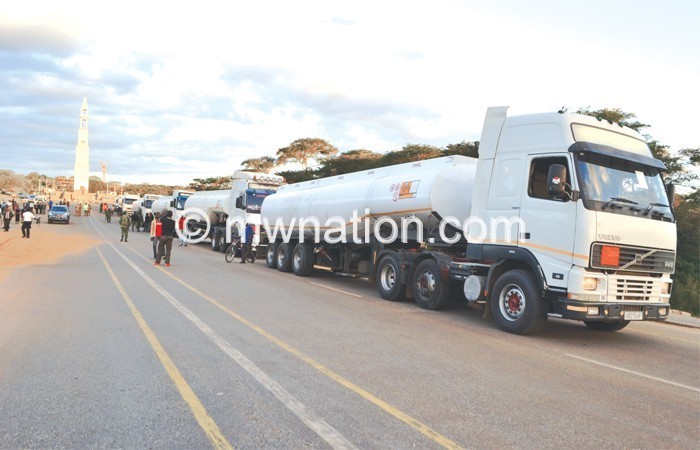Mera moves to solve in-transit fuel losses
Malawi Energy Regulatory Authority (Mera) is formulating a training module for truck drivers to reduce in-transit fuel losses and costs.
Mera chief executive officer Collins Magalasi said this in Zomba on Monday where he officially opened a five-day training workshop for trainer of trainers for bulk drivers.

“We are building a pool of trainer of trainers and we have engaged the technical training experts at Tevet Authority as well as the Department of Road Traffic and Safety Services (DRTSS) to ensure that the selected driving schools that we have identified for this programme get the best skills to train the bulk drivers in a more practical way,” he said.
Magalasi said the costs of in-transit losses impact on the fuel pump prices, thereby affecting the consumer who ends up paying more for a litre of fuel that could cost less.
“When determining the pump price for fuel, the formula takes into account the purchasing costs, transport costs, handling costs, profit margin and distribution costs,” he said.
Tevet Authority deputy head of regulatory and compliance Charles Mataya Phiri said they have developed the training standards to work with the implementers (driving schools) to ensure adherence.
He said the improved training module would be in use from March 2018 and Tevet Authority will monitor the entire process to ensure that the country develops better skilled bulk vehicle drivers.
DRTSS assistant traffic officer Patrick Crosby Kumwenda said the training is critical for bulky vehicle drivers who ferry fuel from neighbouring countries of Mozambique and Tanzania.
He said these drivers travel long distances while moving “dangerous substances” which are delicate to handle yet important.
A recent study shows that the fuel losses are related to human conduct which ranges from poor driving skills resulting in accidents to theft of fuel which is sold on black market.
Malawi is a landlocked country as such it receives most of its valuable goods such as fuel through the ports of Dar es Salaam in Tanzania, Nacala and Beira in Mozambique; hence, the emphasis on road sanity.





